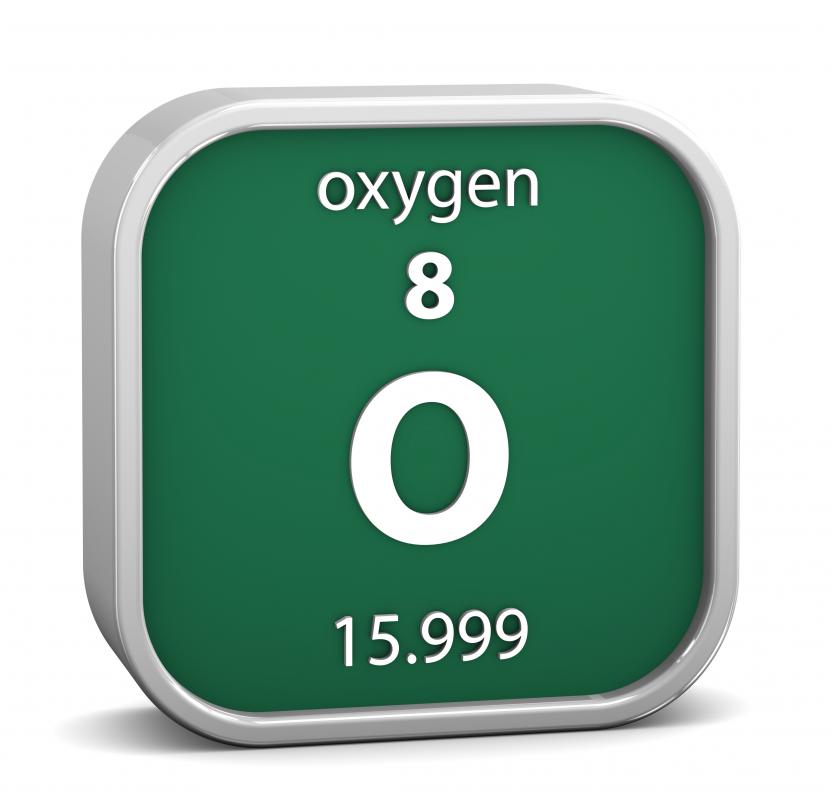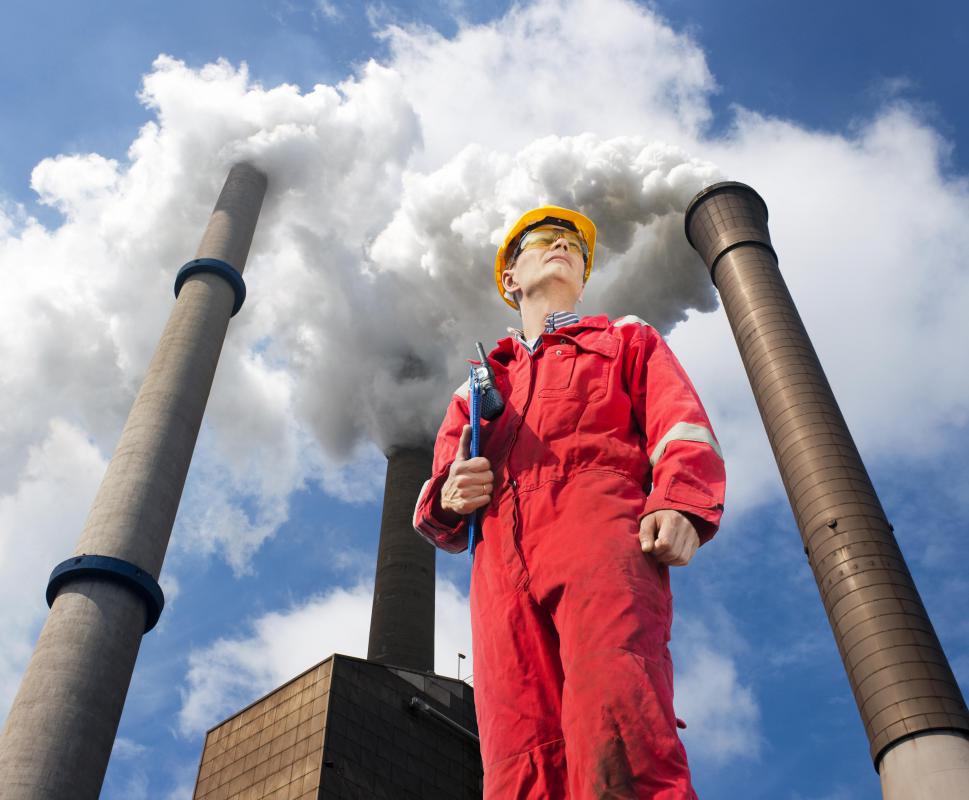What is the Difference Between Air and Oxygen?
 Mary McMahon
Mary McMahon
Air and oxygen are sometimes used interchangeably, but the two things are actually different. Oxygen is a pure element, while the air people breathe is a mixture of elements. Although oxygen is necessary for survival, repeated exposure to the pure form could be harmful. The air that makes up Earth's atmosphere has a healthy balance of elements to sustain human life.
Oxygen is a pure gaseous element. Prolonged exposure to it can actually cause brain damage, although the element is sometimes used therapeutically. Most animals require a certain concentration of oxygen in their blood in order to thrive, and for this reason, the gas is used in emergency situations in which access to air is restricted. When used therapeutically, oxygen is usually mixed with other elements.
Oxygen is number eight on the periodic table, which means that it has eight electrons and eight protons. Only a handful of elements, including helium and hydrogen, are lighter. It has a cubic structure and is a totally colorless element.

The air that people breathe is a mixture that contains primarily oxygen and nitrogen. The nitrogen generally makes up approximately 78%, while oxygen makes up 21%. Other gases, including carbon dioxide, hydrogen, helium, argon, and neon, make up the remainder. These gases dissolve and are carried in the blood.
Anyone who has experienced radical pressure changes is familiar with the effects of dissolved nitrogen in the blood. While this element is normally carried in the blood without any ill effects, extreme depressurization can cause it to form gaseous bubbles. This causes extreme pain and can lead to death from a condition known to divers as the bends.

The term "air" is also used to refer to the Earth’s atmosphere as a whole, which makes life on Earth possible. Air forms the lower part of the atmosphere, and becomes thinner the further the observer is away from sea level. Thin air refers to that which is less dense than that at sea level. On Earth, people at high elevations experience thin air, which can cause shortness of breath and nausea. It has less oxygen, which means that the body must work harder and breathe more quickly to extract the necessary amount of oxygen.

Most creatures tend to take air for granted, because it is an abundant substance. However, increasing pollution has led to a decline in air quality, which has resulted in health problems for some animals. Air which is heavily contaminated with particles in high concentrations can damage lung tissue. Low quality can sometimes be physically seen in the form of smog, a heavy collection of hydrocarbons in the atmosphere.
AS FEATURED ON:
AS FEATURED ON:















Discussion Comments
What elements are in air?
When I was a child I thought that the air was entirely oxygen. It wasn't until I was in middle school or so that I studied things like atmosphere and realized that actually, oxygen is not a very big part of our atmosphere at all. Considering how many people do not study much science or remember what they had to learn, it is no surprise how little most of us know about the differences between oxygen and air.
@donna61- your comment on exercise and high elevation is really important for professional athletes. I have read about many elite runners in particular who will move to high-elevation areas to train, because it forces them to work towards a higher cardiac efficiency. Then, when those athletes compete, especially in places with lower elevation, they will be that much stronger and better.
I experienced this first hand when I moved from Florida to Colorado. Within one hour I experienced altitude sickness. It is very unpleasant and will stay with you about a week, until your body adjusts to the oxygen level at the higher altitude.
Interestingly, I did not experience this a few years ago when we went from a higher elevation to a lower one.
Another thing that less oxygen effects is your ability to exercise. At sea level I thought I was in great shape. Moving to a higher elevation, I have discovered that I am out of shape, and I need to work slowly back up to where I was in my exercise routine.
My doctor said this is very normal for people moving from a lower elevation to a higher one.
Post your comments